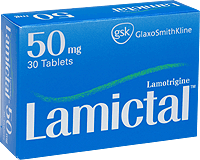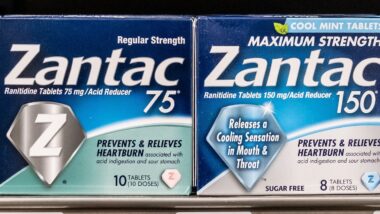 Lamictal (Lamotrigine) is an anticonvulsant and mood stabilizer. Though the drug can greatly improve the quality of life for people with epilepsy and bipolar disorder, a portion of patients may develop life-threatening complications like Stevens Johnson Syndrome (SJS).
Lamictal (Lamotrigine) is an anticonvulsant and mood stabilizer. Though the drug can greatly improve the quality of life for people with epilepsy and bipolar disorder, a portion of patients may develop life-threatening complications like Stevens Johnson Syndrome (SJS).
What is SJS?
SJS is an autoimmune reaction. In autoimmune reactions, the body’s own immune system attacks itself, treating the patient’s own tissues as a foreign parasite. In SJS, the immune system attacks the skin. In some cases, it also damages the tissue of the mucous membranes, the eyes, and even the internal organs. In some cases, SJS can even kill a patient.
Symptoms of SJS
SJS starts out with mild, flu-like symptoms. Many diseases share these symptoms, which can include fever, chills and muscle aches. This is because the actions of the immune system can cause symptoms of their own. However, since the body attacks itself in SJS, the symptoms soon progress to include a painful skin rash. This gives ways to sores, blisters and ulcers as the body continues its assault on itself. The damage may also affect the mouth and inside of the nose. In some cases, the damage spreads to the eyes and internal organs.
SJS Complications
SJS can cause a host of complications. The damage to the skin leaves a patient vulnerable to serious secondary skin infections. Additionally, in cases that involve the organs or eyes, the damage may become permanent, leaving patients with lifelong blindness and impaired organ function. As many as 1 in 10 SJS patients will die from the disease. However, the most extreme cases, SJS progresses to Toxic Epidermal Necrolysis or TEN. TEN is an extreme form of SJS, where patches of the skin die and slough off, leaving burn-like injuries.
What Triggers SJS?
While many questions remain about SJS, the reaction almost always happens in response to a drug like Lamictal. However, many people can take Lamictal without developing SJS. A genetic susceptibility appears to be a major component of SJS. However, even though certain alleles have been identified as a risk factor for SJS, many patients with SJS lack these genes, and many people with these genes never develop SJS, even when exposed to drugs like Lamictal.
SJS Lawsuit Numbers Grow
Lawsuits have been filed against the manufacturers of drugs like Lamictal, by SJS victims and their surviving family members. These SJS lawsuits allege that drug manufacturers are well aware of the risk of SJS, but do not do enough to warn patients and protect the general public from the risk of SJS complications. Plaintiffs file an SJS lawsuit to seek compensation to cover emergency medical costs, the cost of long-term care, and lost income potential when there is permanent disability.
In general, SJS lawsuits are filed individually by each plaintiff and are not class actions.
Do YOU have a legal claim? Fill out the form on this page now for a free, immediate, and confidential case evaluation. The attorneys who work with Top Class Actions will contact you if you qualify to let you know if an individual lawsuit or class action lawsuit is best for you. Hurry — statutes of limitations may apply.
ATTORNEY ADVERTISING
Top Class Actions is a Proud Member of the American Bar Association
LEGAL INFORMATION IS NOT LEGAL ADVICE
Top Class Actions Legal Statement
©2008 – 2026 Top Class Actions® LLC
Various Trademarks held by their respective owners
This website is not intended for viewing or usage by European Union citizens.
Get Help – It’s Free
Help for Victims of Stevens Johnson Syndrome
If you or a loved one were diagnosed with Stevens Johnson Syndrome (SJS) or toxic epidermal necrolysis (TEN) after taking a prescribed or over-the-counter medication, you may be eligible to take legal action against the drug’s manufacturer. Filing an SJS lawsuit or class action lawsuit may help you obtain compensation for medical bills, pain and suffering, and other damages. Obtain a free and confidential review of your case by filling out the form below.
An attorney will contact you if you qualify to discuss the details of your potential case at no charge to you.
Oops! We could not locate your form.












